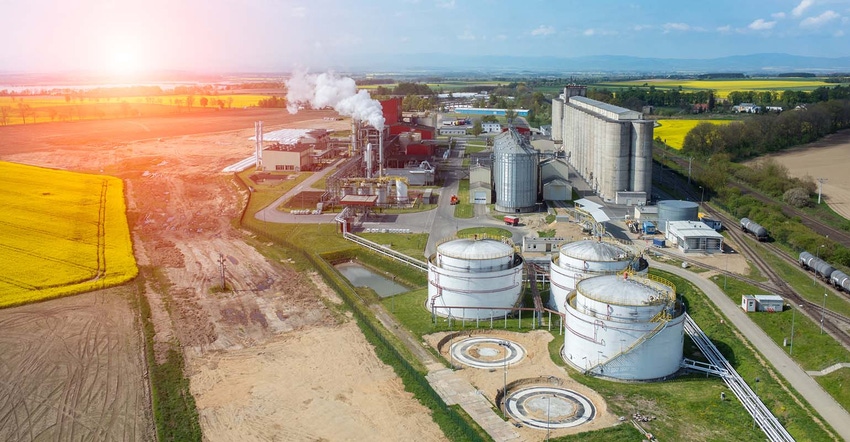December 1, 2018

The Trump administration announced its 2019 quotas for the Renewable Fuel Standard on Nov. 30.
Refiners will be required to blend 19.92 billion gallons of biofuel next year, with 15 billion gallons coming from conventional sources, including corn-based ethanol.
The final rule sets the 2020 requirement for biomass-based biodiesel volumes at 2.43 billion gallons, a 330-million-gallon increase over the 2018 and 2019 levels. Total advanced biofuel volumes, which are largely filled by biodiesel, are increased to 4.92 billion gallons.
Related: Trump orders increase in renewable fuel blending
Here’s some of the reaction we’ve received:
“We are pleased the Environmental Protection Agency maintained the implied conventional ethanol volume of 15 billion gallons and increased the total 2019 renewable fuel volume as intended by the RFS,” said Lynn Chrisp, Nebraska farmer and president of the National Corn Growers Association. “However, EPA granted refineries 2.25 billion gallons in RFS waivers over the past year but did nothing to account for those lost volumes. If EPA continues to grant large amounts of waivers in this manner, the volumes set in this final rule cannot be met. Ethanol has been and continues to be a strong market for U.S. corn farmers, especially during these tough times in the farm economy. When the EPA continues to grant waivers and does not account for those volumes in this rule, domestic demand for our crop is lost, impacting farmers’ livelihood and the economy of rural America.”
“We welcome this increase, as it helps a growing market for soybean oil. We are glad to see EPA acknowledge that biodiesel can play a larger role in our nation’s fuel supply,” said American Soybean Association President John Heisdorffer, a soybean producer from Keota, Iowa. “As ASA communicated to EPA during the rulemaking process, soybean farmers and our biodiesel industry partners can meet these targets, and we have the production capacity and feedstock to reasonably achieve even further growth.”
“The 2019 biofuel volumes coupled with year-round sales of E15 show a clear path forward for America,” said Kyle Gilley, Senior Vice President of External Affairs and Communications, POET. “Unfortunately, the previous EPA administrator dealt our nation’s biofuels program a serious setback with refinery waivers to the most profitable companies in the world that effectively slashed the 2018 volumes. Those waivers continue to weaken corn prices, cut biofuel production and even idle some facilities. It is time to get our America First fuel policy back on track, and we encourage the acting EPA administrator to hold oil refiners accountable and maintain the integrity of the Renewable Fuel Standard
“We are pleased to see the 2019 RVO numbers released on time and that they hold strong promise, with a 15-billion-gallon commitment to starch ethanol and 418 million gallons of cellulosic biofuels,” said Emily Skor, CEO, Growth Energy. “But the latest EPA rule is also a missed opportunity to correctly account for billions of gallons of ethanol lost to refinery exemptions. Until these are addressed properly, we’re still taking two steps back for every step forward.”
“The final targets open new possibilities for advanced and cellulosic biofuels, but without a check on abusive EPA waivers, we’ll continue to see plants closing their doors or idling production,” said from Brooke Coleman, Executive Director, Advanced Biofuels Business Council. “The agency cannot fulfill the president’s commitments in the heartland without putting a lid on handouts to oil giants like Chevron and Andeavor.”
"President Trump's numerous assurances to American family farmers to support the biofuels industry and increase demand for farm products continue to fall short at the hands of EPA,” said National Farmers Union President Roger Johnson. “The decision to exempt refiners from complying with the RFS, coupled with today's decision not to make up for the lost demand, leaves farmers at a significant net loss under the current administration. This rule is not keeping with Congress' intent with the RFS, which is to drive investment in American grown biofuels.”
Source: ASA, NFU, Growth Energy, Advanced Biofuels Business Council, POET, NCGA
You May Also Like




